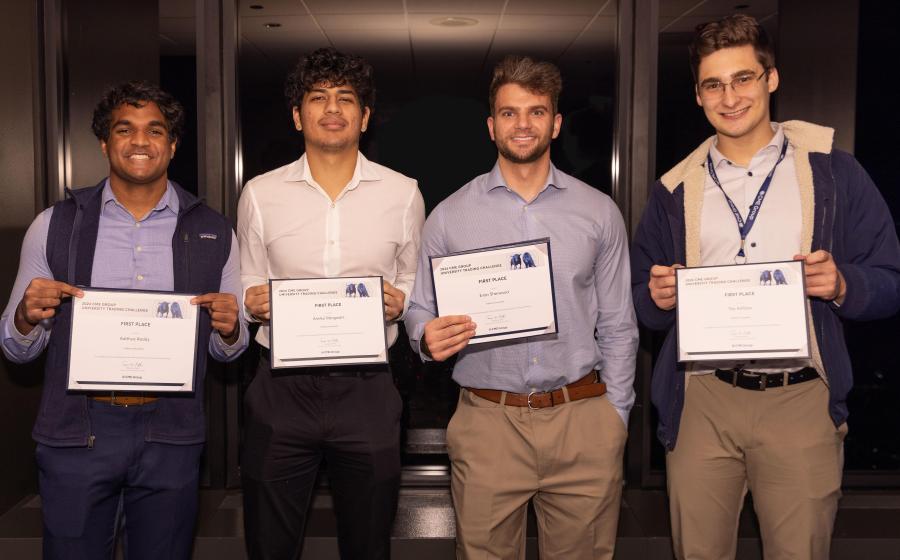Why Financial Resolutions Fail: New Research Reveals the Key Obstacles to Success
(NewsUSA) - As the new year approaches, many people will be setting financial resolutions with hopes of improving their financial health – whether it's saving more, paying down debt, or investing wisely. However, despite the best of intensions, new research by financial services firm Edward Jones reveals that a variety of factors often prevent these resolutions from sticking.
- As the new year approaches, many people will be setting financial resolutions with hopes of improving their financial health – whether it's saving more, paying down debt, or investing wisely. However, despite the best of intensions, new research by financial services firm Edward Jones reveals that a variety of factors often prevent these resolutions from sticking.
According to the research, more than half of Americans (56%) who made a financial resolution in 2024 abandoned it because of price increases caused by inflation. While those surveyed expressed optimism about keeping their financial resolutions in 2025, more than half (55%) said inflation was their main challenge to financial accountability in 2024, and nearly the same (56%) expressed concern that inflation could derail their financial goals in 2025.
"Sticking to your financial resolutions can be incredibly challenging, especially when inflation puts added pressure on everyday expenses," says Bryan Piccirillo, Financial Advisor at Edward Jones. "In a climate where costs are rising faster than wages, it's more important than ever to set realistic financial goals, even when the odds seem stacked against you."
Across generations surveyed (from Gen Zers to Baby Boomers), Americans said they are confident (81%) in their ability to keep their financial resolutions next year and they say they will prioritize building up emergency savings and paying down debt in 2025. Although saving for retirement is less of a priority, 21% of Gen Xers said they expect to plan for it during the coming year, according to the survey.
Additionally, approximately one-third of survey respondents (33%) said they planned to spend the same amount on investments in 2025 as in 2024, while 22% said they plan to increase investment spending.
A financial advisor can help develop strategies to turn your financial resolutions into realities, by building a plan to help reduce debt through consolidation, tools for building an emergency fund, and boosting contributions to retirement accounts.
In the Edward Jones survey, approximately half of respondents (50%) believe that working with a financial advisor would help them stay on track. No matter how you are balancing your budget, a financial advisor can help you weather periods of inflation without sacrificing your short-term and long-term goals.
For more information and to find a financial advisor near you, visit: www.edwardjones.com.



 - Part of the mission of intelligence communities (ICs) is to alert leaders to the likelihood and implications of events such as imminent acts of military aggression by adversaries, sudden political transitions, or economic crises. Policy makers need as much warning as possible in order to prepare next moves in response to potential disruptions or threats on a global scale.
- Part of the mission of intelligence communities (ICs) is to alert leaders to the likelihood and implications of events such as imminent acts of military aggression by adversaries, sudden political transitions, or economic crises. Policy makers need as much warning as possible in order to prepare next moves in response to potential disruptions or threats on a global scale.
 - Here’s a chance for readers to get a sneak peek into some of the hottest books and new voices being talked about in literary circles this holiday season.
- Here’s a chance for readers to get a sneak peek into some of the hottest books and new voices being talked about in literary circles this holiday season.
 - The winter holidays are here, and whether you are hosting a large crowd or intimate group of family and friends, you can up your holiday bar game without much effort.
- The winter holidays are here, and whether you are hosting a large crowd or intimate group of family and friends, you can up your holiday bar game without much effort.
 - Winter holidays are fast approaching, and while you’re busy planning meals, buying gifts and decorating, there’s one more preparation that shouldn’t be overlooked: cleaning your home top to bottom to prepare for the influx of guests. While we tend to focus on the obvious areas – like the kitchen counters and toilets – there are several overlooked spots that are prone to grime, odors and buildup that can make or break your hosting experience.
- Winter holidays are fast approaching, and while you’re busy planning meals, buying gifts and decorating, there’s one more preparation that shouldn’t be overlooked: cleaning your home top to bottom to prepare for the influx of guests. While we tend to focus on the obvious areas – like the kitchen counters and toilets – there are several overlooked spots that are prone to grime, odors and buildup that can make or break your hosting experience.
 - As the holiday season fast approaches, families across the country are already feeling the financial pinch. With gifts, travel, and celebrations adding up, unexpected expenses can be a burden. One such surprise? Auto glass damage from vehicle break-ins. The holidays tend to bring an uptick in car break-ins, leaving drivers facing costly auto glass repairs or replacements just when they can least afford it.
- As the holiday season fast approaches, families across the country are already feeling the financial pinch. With gifts, travel, and celebrations adding up, unexpected expenses can be a burden. One such surprise? Auto glass damage from vehicle break-ins. The holidays tend to bring an uptick in car break-ins, leaving drivers facing costly auto glass repairs or replacements just when they can least afford it. Auto Glass Now: Here to Support You This Holiday Season
Auto Glass Now: Here to Support You This Holiday Season
 - As the holiday season approaches, the Marine Corps Reserve Toys for Tots Program is dedicated to ensuring that children in need have gifts to open on Christmas morning. This year’s campaign is especially critical, as many families across the Nation continue to face economic challenges and distress.
- As the holiday season approaches, the Marine Corps Reserve Toys for Tots Program is dedicated to ensuring that children in need have gifts to open on Christmas morning. This year’s campaign is especially critical, as many families across the Nation continue to face economic challenges and distress.
 - Baby Boomers hit peak retirement in 2024, according to the
- Baby Boomers hit peak retirement in 2024, according to the 
 - Scams targeting people age 60 and older resulted in over $3.4 billion in losses in 2023, according to the
- Scams targeting people age 60 and older resulted in over $3.4 billion in losses in 2023, according to the 
 - IU Students Prevail in 2024 CME Group University Trading Challenge
- IU Students Prevail in 2024 CME Group University Trading Challenge 


